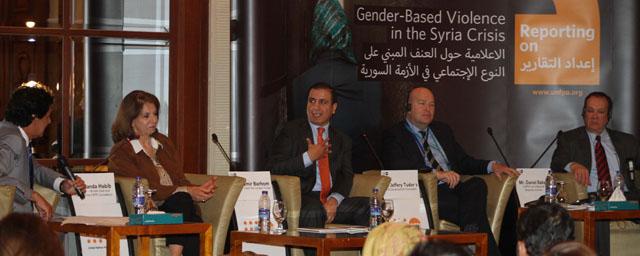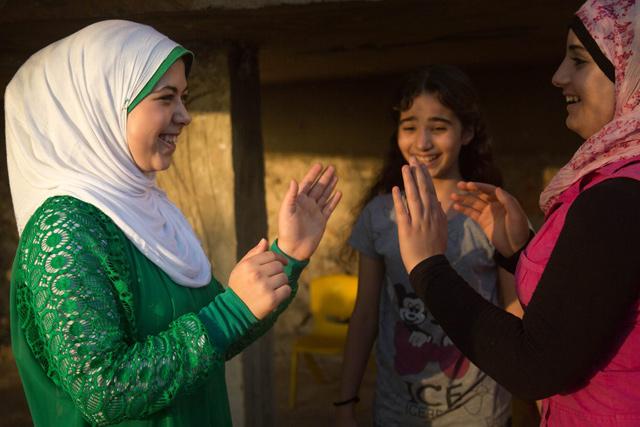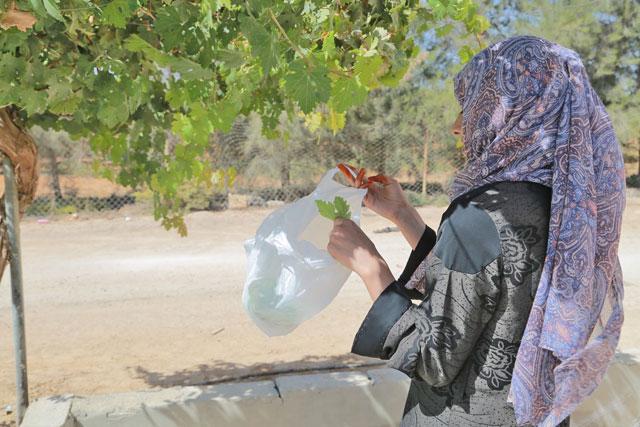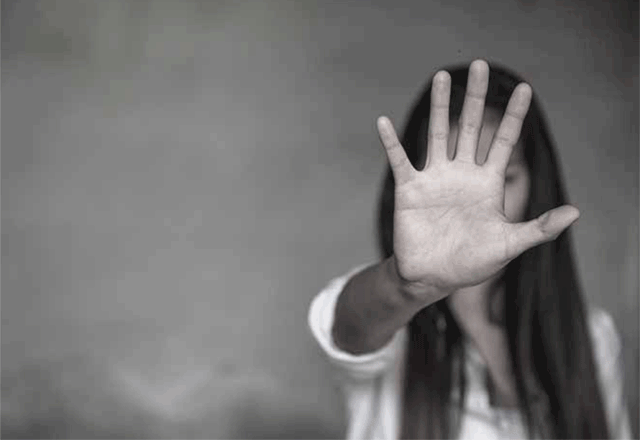You are here
Booklet offers tips for media coverage of gender-based violence
By Khetam Malkawi - Mar 09,2015 - Last updated at Mar 09,2015

AMMAN — Gender-based violence and other acts of violence practised against women should be highlighted in the media to find ways to address them, experts and media representatives said on Monday.
“Journalists have an important role to play in preventing and responding to violence and advocating for women’s rights,” HRH Princess Rym Ali said.
“They have a professional obligation to seek and report the truth, [and] at the same time an ethical obligation to minimise harm,” the princess added in a video message displayed at the launch of a handbook titled “Reporting on Gender-Based Violence (GBV) in the Syria Crisis” to help journalists better understand issues surrounding GBV and write about it more effectively and sensitively.
The booklet, developed by the UNFPA, is the first comprehensive collection of practical tips for journalists on how to report on GBV in the context of the Syrian crisis, building upon internationally recognised ethical principles.
It gives an overview of techniques to guarantee the safety, confidentiality and dignity of survivors, their families and communities.
It includes terms, ethical questions and practical concerns associated with covering GBV, as well as an overview of some of the organisations involved in combating the phenomenon, and providing support services for survivors.
Speaking at the launch, Samir Barhoum, editor-in-chief of The Jordan Times, said media outlets are covering issues related to violence against Syrian women refugees, but the focus has been on early marriage.
Some have started blaming host communities for these consequences rather than tackling the issue itself, he said, stressing the need to expand the scope of coverage to include other types of violence against women.
Randa Habib, Agence France-Presse director for the Middle East and North Africa, noted that there has been exaggeration, sometimes, in covering the issue of early marriage among Syrian refugees, but this has brought attention to it.
Daniel Baker, UNFPA’s Syria regional response adviser, also agreed that the media has an integral role in raising public awareness of the spread of early marriage and its consequences.
He noted that marriages of girls under the age of 18 are on the rise, but no statistics are available.
According to Baker, the launch of this handbook will help journalists understand GBV better and how to raise awareness on its consequences.
“We believe that journalists have a very powerful role in raising awareness and fighting GBV, because they not only report but also help shape public opinion and perceptions,” he added.
Experts also highlighted the importance of using social media in spreading the word and noted that the handbook can also be used as a guide for covering GBV issues in general, not only within the Syrian context.
UNFPA developed the handbook in collaboration with a group of journalists and experts in the areas of GBV and the media, with the financial support of the UK’s Department for International Development.
It will be distributed in the six countries affected by the Syrian crisis and used to train journalists.
Related Articles
AMMAN — Given the rise in the risk of violence against women and girls during the COVID-19 pandemic and the importance of ensuring accurate,
AMMAN — The United Nations Population Fund (UNFPA) on Tuesday launched its strategy to address the needs of adolescent girls in the Whole of
The official definition of GBV is harmful acts directed at an individual based on gender. It is rooted in gender inequality, the abuse of power and harmful norms. Unfortunately, one in every three women worldwide is subjected to either physical and/or sexual abuse in their lifetime.
















